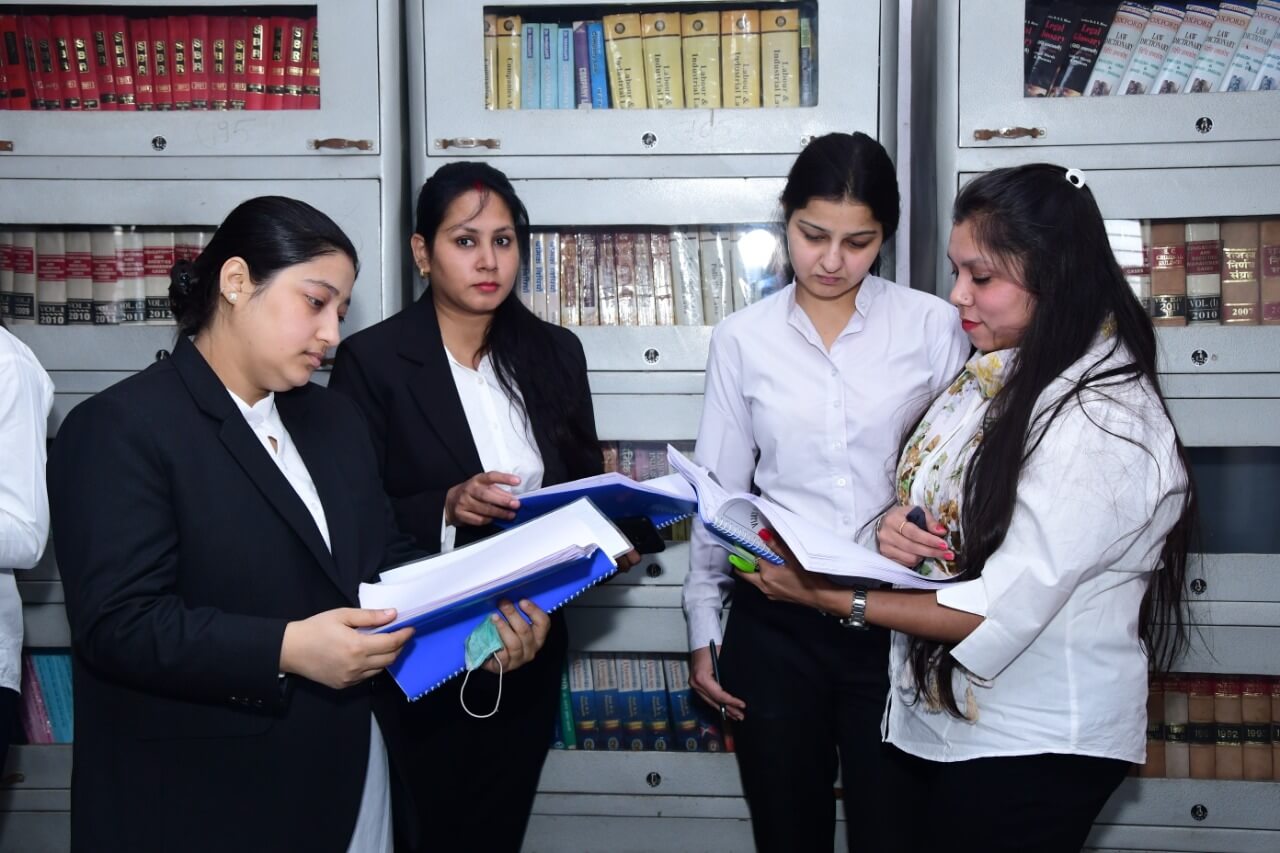For admission related enquiry please call: 9818333731

The
library is the 'heart' of any academic institution and plays an important role
in all academic activities and, the more so, in law institutions. The library has been planned
keeping in view the aims and objectives of the Law School, and is being
operated by a team of professionally qualified library staff guided by the
Library Council.
Vijaysingh
Pathik Institute of Law has a collection of over 8000 books covering a wide
range of law, general and special subjects, comprising of text books, reference
books, back volumes of journals, Daily News Papers and reports etc.
Nowadays, we are extremely dependent on the internet for
information in our daily lives. However, does that information always bring us
the right answers? As you might know, search engines such as Google tend to
provide us with information depending on our formulated questions or keywords,
therefore the data we get is not always relevant. Instead, we should lean on
libraries. Libraries play a fundamental role in learning, where librarians and
other resources and services help people to access information that they need. As Eli
B. Martin says: “Because the internet is harder to sort through than a
library catalog, there’s a strong case that a library’s core services are
actually becoming much more important.”
In this post you will read about five concrete reasons why libraries
are essential to have and why visitors appreciate them.
1. Libraries maintain history, Data and more importantly, truth
Since the ancient
Roman Empire, libraries had a purpose to store different kinds of
information, such as historical, literary, musical, military documents. Even
though in the past 2,000 years many changes, and innovation have occurred,
libraries have kept their main purpose to provide visitors with the information
they are looking for and be certain about giving the truth. Regardless of the
information visitors are looking for, they can easily access it through the
help of skilled and well-trained librarians. Therefore, librarians have a
significant role in public and academic libraries. Generally, their duties
include collection-cataloging, development, reference services, building
partnerships with educational institutions and providing instructional
lecturers to visitors. However, as many communities know, librarians do this
and so much more!
“Google
can bring you back 100,000 answers. A librarian can bring you back the right
one.” – Neil Gaiman
2. Libraries offer free educational resources
libraries play an
important role in supporting education and literacy. They provide countless
resources, such as educational materials, trainings, courses, scientific
publications, etc. to visitors. libraries provide their services not only
face-to-face, but some of them have also integrated e-learning. Furthermore,
several published studies confirmed that libraries had a tremendous
importance in every community by providing various services for
educational purposes. Nowadays, patrons enter public libraries to find
what they will read next, to ask questions about job applications and
resume writing or to fill out government forms, including tax and health
insurance paperwork. All these questions are answered by highly skilled
librarians without any charge.
3. Libraries help to build communities
Students come to
libraries not only looking for information, but also, for finding themselves
and their communities. Mothers join baby story-times clubs, elderly people
attend events and find ways to connect with people. While teenagers meet up in
libraries with their study groups for teambuilding or school projects and
readers discuss current events in the periodical’s rooms. In addition,
libraries serve as community centers for diverse populations by supporting
non-English speakers to help them integrate into the community. Hence, public
libraries often collect books in different languages and hire librarians or
staff who are multilingual. Furthermore, for artists and art enthusiasts,
public libraries can provide a place to arrange exhibitions and to promote
themselves. One of the biggest values to be mentioned is that public libraries
provide access to the arts for all visitors, normally free of charge.
4. Libraries are transparent with all the services they provide
Privacy is a growing
concern in society these days. Data tracking systems that collect, compare and
share information might affect consumers’ trust. However, all the services
provided in public libraries are focused on consumers and not solely on
revenue. That is why libraries do not track your reading history or which
trainings you went to. It is simply not in the field of their interest.
5. Libraries contribute to increasing economy
Because libraries
are free to use for patrons, not so many people consider the role they play in
the economy. Public libraries provide access to information about business
planning, market research and finance opportunities for entrepreneurs who are
looking for spaces to network, conduct research, use technology, and arrange
meetings. Even though job requirements are changing fast, it is possible to
upskill the workforce without spending enormous amounts of money. Technology in
libraries can be innovative, offering access to expensive tolls, training and
skills that otherwise would not be available for everyone.
All things
considered, libraries play a fundamental role in a society. Public libraries
provide resources and services for literacy and education to anyone in need or
wanting access. They help individuals to expand their network and become a part
of a community. Therefore, peoples’ need for libraries which serve as shared,
community-centered spaces that help them find information and connect them with
others is unlikely going to change any time soon.
TIMING OF LIBRARY
The Vijay
Singh Pathik Institute of law Library functions from 9.30 a.m to 5.00 pm on all
days of the week, but closing hours will vary on Holidays.